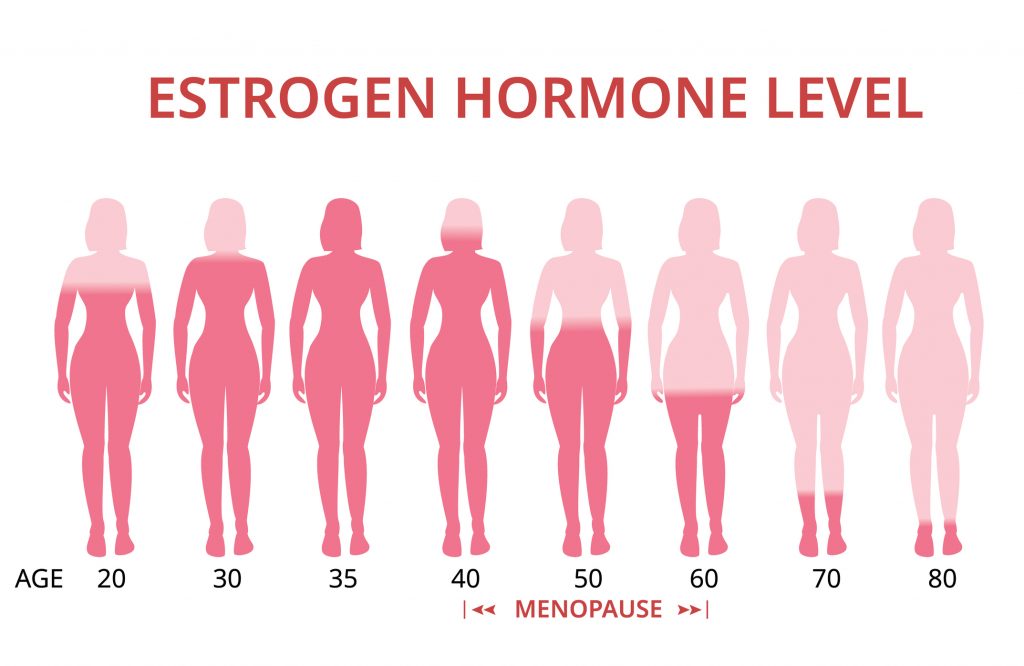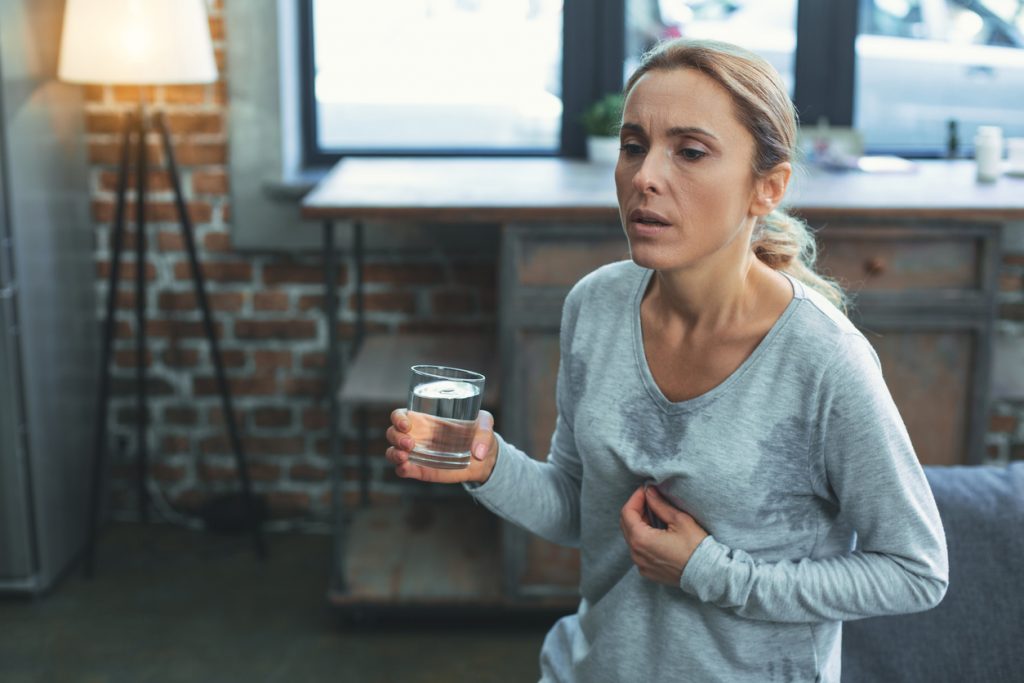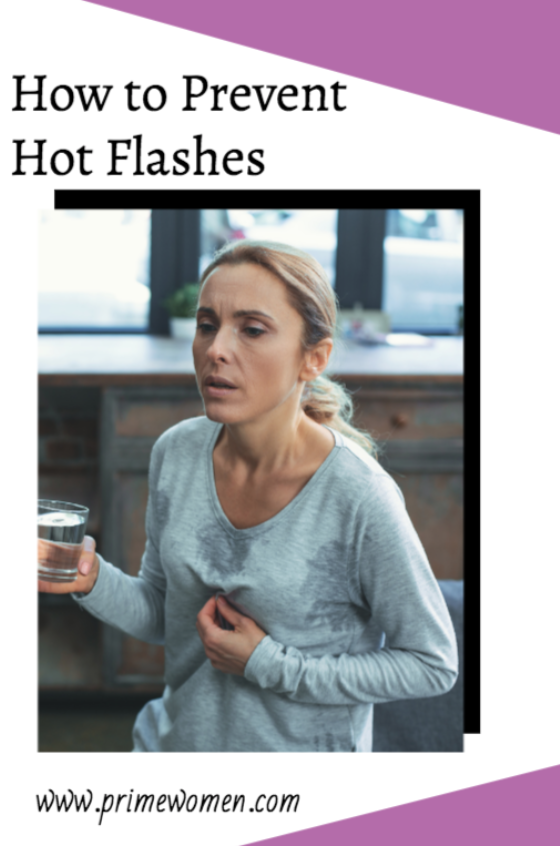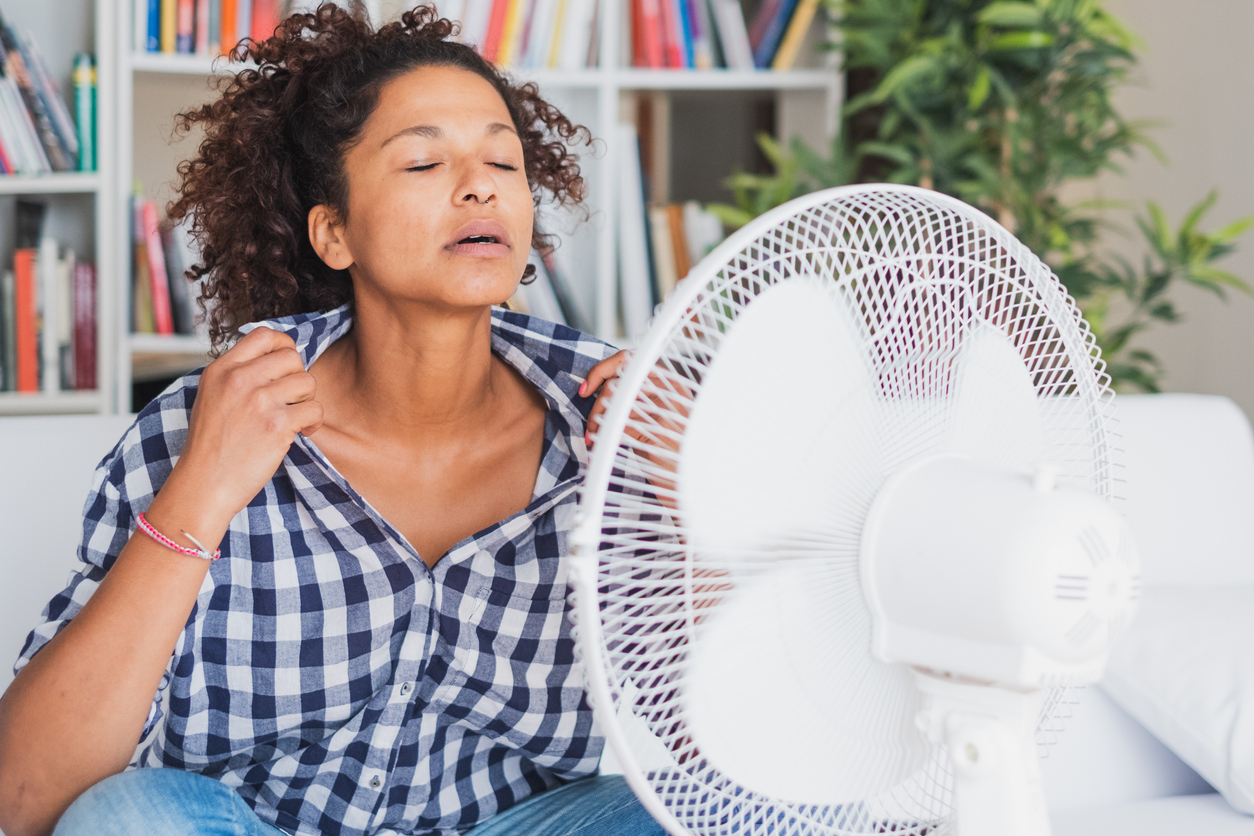Some women suffer from embarrassing hot flashes that come on faster than a heatwave. They begin inside your body and spread to your face, neck, and chest. They can strike at inopportune times like during a presentation at work or while having a glass of wine on a date. Or maybe you woke up drenched in sweat, interrupted by a hot flash in bed. You may wonder what’s happening. You feel like you’re losing control. The heat is so intense you want to jump in a pool or stand in front of the freezer. Well, get ready for some hot flash relief.
Why Is This Happening?
Hot flashes can be a symptom of menopause caused by decreased estrogen levels, blocked estrogen receptors, and changes in other hormone levels. There are different schools of thought about what causes hot flashes, including a decrease in estrogen, a decrease in progesterone, or the beginning of menopause.

Many doctors believe hot flashes can originate from hormonal changes and how they interact with the body’s thermostat, which is in a woman’s brain. The brain has an intricate way of regulating your body heat. The hypothalamus is the command center, coordinating your autonomic nervous system. It’s like a thermostat, controlling the release of chemicals and hormones related to temperature. When a hot flash comes on, it causes changes in your blood vessels that increase blood flow to your skin pores.
The process is called a vasomotor spasm. Rush University has found that blood vessels constrict and expand quickly during a hot flash, which leads to flushing and a skin temperature change. Your skin turns red and blotchy, and you feel like you’re in an inferno. Because your brain thinks you’re too hot, that causes a sweating response, increasing your skin temperature five to seven degrees higher. Then, you can get a chilled feeling as a hot flash ends. All of this can make you feel dizzy, weak, and nauseous.
What to Expect
Hot flashes can come on suddenly, frustrating those already dealing with the many changes of aging and menopause or changes after a hysterectomy. Menopause.org says they’re a common symptom of perimenopause and menopause in a woman’s forties and fifties. While most hot flashes are just a nuisance, they can raise your blood pressure and heart rate. Older women are already more vulnerable to osteoporosis, and the Mayo Clinic says there can be some bone loss as a result of hot flashes.

For some women, they can be mild, but for others, they can be intense and frequent. Healthline finds that, on average, hot flashes last four minutes, but they can be longer or shorter, lasting mere seconds. According to the North American Menopause Society, 75% of women will have hot flashes lasting about seven to ten years. A small percentage experience it for ten to fifteen years, and women known as “Super Flashers” can have them for twenty years or more. The Mayo Clinic finds that obesity is associated with a higher frequency of hot flashes.
Hot flash Relief Tips for an Onset
Being in the summer heat can trigger a hot flash, so make sure to keep hydrated.
- Drink a glass of cold water as a hot flash comes on
- Spray lavender oil on your skin to cool down
- Wear layers so you can shed them as you get hotter and more uncomfortable
- Keep a mobile fan in your purse
- Avoid common triggers like spicy foods, caffeine, alcohol, and avoid smoking.
For Better Sleep
It can be especially jarring when you wake up in the middle of the night drenched in sweat from hot flashes. Excessive sweating depletes your system of fluids and salt. Hot flashes can interrupt your sleep pattern, which can lead to chronic insomnia.
- According to breastcancer.org, a cool shower before sleeping can help bring hot flash relief.
- Try lowering the temperature in your bedroom and keeping an ice pack by your bed.
- Choose a mattress that lets you control the temperature or bedding with Chili Technology.
Avoiding Hot Flashes Medically
Beware: overwhelming hot flashes can lead to depression and anxiety. Some doctors prescribe hormone therapy or FDA-approved antidepressants that are selective serotonin reuptake inhibitors to cope with the condition. If you’re concerned about estrogen drug side effect risks like a heart attack or stroke, consult a doctor.

Nontraditional Ways to Avoid Hot Flashes
- Yoga, meditation, and other calming techniques can help because stress can bring hot flashes on.
- The Mayo Clinic says some women have turned to acupuncture
- Black Cohosh is being taken with some success, but investigate drug interactions.
- Increase your soy consumption by eating tofu or edamame. Plant estrogens, found in soy products, may have small estrogen-like influences.
You may need to try different approaches as you age to find some hot flash relief. There is no cure for hot flashes, and they are not all caused by menopause. It could also be hypothyroidism, so it’s important to talk to your doctor.
Read Next:
Why Hot Flashes Vary From Woman To Woman
Menopause Cold Flashes: Why They Happen and What to Do
How Technology is Helping Women During Menopause and Beyond








